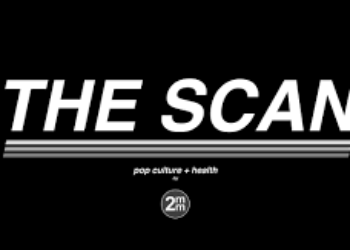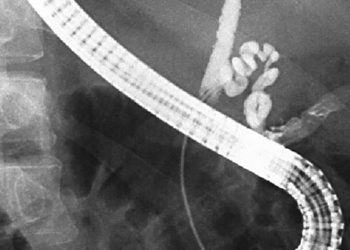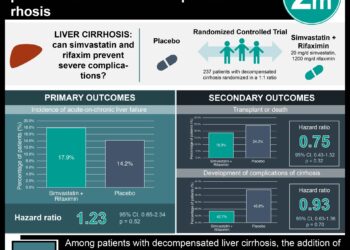Physician Assistant home visits associated with reduced infection-related re-admissions in cardiac surgery patients
Jan 7th – PA home visits on days 2 and 5 post-op demonstrated a 30% decrease in infection-related hospital re-admissions. [tabs tab1=”2MM Rundown” tab2=”Full 2MM Report” tab3=”About the Authors”]
[tab]
Image: PD
1. Patients receiving physician assistant home visits on days 2 and 5 post-operatively demonstrated a 30% decrease in infection-related hospital re-admissions when compared with a control group of patients receiving visits by nurses without cardiac surgery-specific training.
2. The rate of re-admissions for MI, stroke, GI bleeds, and other complications was unchanged.
Physician assistant visits to patient homes on postoperative days 2 and 5 were shown to reduce infection-related re-admissions. While only 5 patients received antibiotic therapy during home visits there were 18 fewer patients re-admitted for infections. This suggests some of the effect observed was from patients seeking non-emergent treatment for infections earlier and patient reassurance ultimately prevented presentation and admission. Since this study matched physician assistants with patients from their cases, a limitation in applying this study in the clinic is freedom in physician assistant schedules to make house calls for their patients, especially for patients who live longer distances from their surgical center.
Click to read the study in The Journal of Thoracic and Cardiovascular Surgery
[/tab]
[tab]
Image: PD
1. Patients receiving physician assistant home visits on days 2 and 5 post-operatively demonstrated a statistically significant decrease in infection-related hospital re-admissions when compared with a control group of patients receiving visits by nurses without cardiac surgery-specific training.
2. The rate of re-admissions for MI, stroke, GI bleeds, and other complications was unchanged.
Primer: Preventing hospital readmissions has become an important quality measure for all subspecialties and is, in the words of Dr. Scott Millikan, “the holy grail of health care cost reduction in this country.” For cardiac surgery patients, there is incomplete literature regarding the best postoperative interventions to prevent readmission to the hospital. It is difficult to predict which patients will experience some complications such as stroke, and similarly difficult to alter their course. Readmission following CABG may be preventable, to some degree, with optimal early management such as home visits. This study investigated the effect of home visits on outcomes in cardiac surgery patients.
Background reading:
This [retrospective] study: examined 361 control patients, visited at home by standard visiting nurses (without special training caring for cardiac surgery patients), and 340 patients seen by physician assistants involved in the patients’ operations. There was no difference in the overall readmission rates between the control and physician assistant group. However the percentage of patients re-admitted for infectious etiology was significantly higher in the control group as compared to the physician assistant group (44% vs. 19%).
In sum: Physician assistant visits to patient homes on postoperative days 2 and 5 were shown to reduce infection-related readmissions. While only 5 patients received antibiotic therapy during home visits there were 18 fewer patients re-admitted for infections. This suggests some of the effect observed was from patients seeking non-emergent treatment for infections earlier and patient reassurance ultimately prevented presentation and admission. Since this study matched physician assistants with patients from their cases, a limitation in applying this study in the clinic is freedom in physician assistant schedules to make house calls for their patients, especially for patients who live longer distances from their surgical center.
Click to read the study in The Journal of Thoracic and Cardiovascular Surgery
By [GS] and [AH]
More from this writer: Modifying mitral valve structure concurrently with coronary bypass helps post-MI patients optimize cardiac function and improve functional status
© 2013 2minutemedicine.com. All rights reserved. No works may be reproduced without written consent from 2minutemedicine.com. Disclaimer: We present factual information directly from peer reviewed medical journals. No post should be construed as medical advice and is not intended as such by the authors or by 2minutemedicine.com. PLEASE SEE A HEALTHCARE PROVIDER IN YOUR AREA IF YOU SEEK MEDICAL ADVICE OF ANY SORT. Content is produced in accordance with fair use copyrights solely and strictly for the purpose of teaching, news and criticism. No benefit, monetary or otherwise, is realized by any participants or the owner of this domain.
[/tab]
[tab]
 Gina Siddiqui: Gina is a 3rd year M.D. candidate at the Perelman School of Medicine, University of Pennsylvania
Gina Siddiqui: Gina is a 3rd year M.D. candidate at the Perelman School of Medicine, University of Pennsylvania
 Allen Ho: Allen is a 4th year M.D. candidate at Harvard Medical School, currently conducting cancer research at MD Anderson as a Howard Hughes Medical Research Fellow in the laboratory of Ronald DePinho.
Allen Ho: Allen is a 4th year M.D. candidate at Harvard Medical School, currently conducting cancer research at MD Anderson as a Howard Hughes Medical Research Fellow in the laboratory of Ronald DePinho.
[/tab]
[/tabs]




